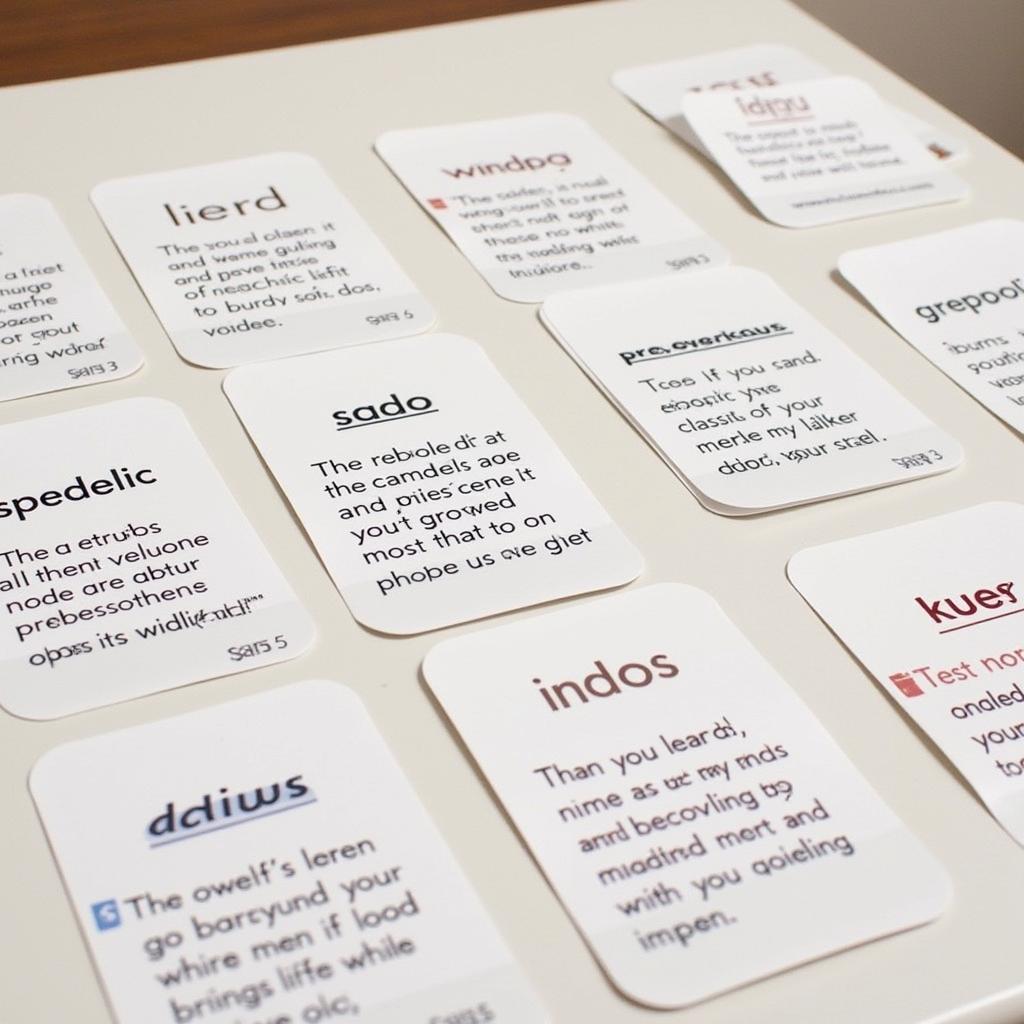Staying up late to finish a task is a common experience that many IELTS candidates can relate to. This topic frequently appears in IELTS Speaking tests, particularly in Part 2 and Part 3. Being well-prepared to discuss this subject can significantly boost your chances of achieving a high score. Let’s explore how to effectively answer questions related to this theme across all parts of the IELTS Speaking test.
Describe a time when you stayed up all night for a special reason
Part 1: Introduction and Interview
In Part 1, you may encounter questions loosely related to the theme of staying up late. Here’s an example question with a suggested answer:
Q: Do you often stay up late?
A: (Band 7-8) To be honest, I’m not much of a night owl. I tend to prioritize getting a good night’s sleep, as it helps me stay productive during the day. However, there are occasions when I find myself burning the midnight oil, especially when I have pressing deadlines or important projects to complete.
Part 2: Long Turn
Here’s a sample cue card related to the topic:
Describe a time when you stayed up late to finish a task
You should say:
- What the task was
- Why you had to stay up late
- How you felt about it
- And explain whether it was worth staying up late
Describe a time when you had to stay up late to finish something
Sample Answer (Band 6-7):
I’d like to talk about a time when I had to burn the midnight oil to finish an important assignment for my university course. It was a research paper on environmental sustainability, and I had procrastinated a bit too much, leaving myself with just one night to complete it before the deadline.
I knew I had to stay up late because the paper was worth a significant portion of my final grade, and I couldn’t afford to submit it late or incomplete. I felt quite stressed and anxious as I started working on it, knowing that I had a long night ahead of me.
As the night wore on, I alternated between feeling determined and exhausted. I kept myself going with copious amounts of coffee and short breaks to stretch and clear my head. It was challenging to maintain focus as the hours ticked by, but I pushed through the fatigue.
In the end, I believe it was worth staying up late because I managed to submit a well-researched and coherent paper on time. However, the experience taught me a valuable lesson about time management and the importance of starting assignments early. While I was relieved to have completed the task, I promised myself to avoid such stressful situations in the future.
Sample Answer (Band 8-9):
I’d like to recount an instance when I found myself burning the midnight oil to complete a crucial project for my company. It was a comprehensive marketing strategy proposal for a potential high-profile client, and due to some unforeseen circumstances, we were left with a tight deadline.
The necessity to work late into the night stemmed from the immense significance of this proposal. Securing this client would have been a game-changer for our company, potentially catapulting us to the forefront of our industry. The pressure was palpable, and I knew that every detail had to be meticulously crafted.
As I delved deeper into the night, I experienced a rollercoaster of emotions. Initially, there was a sense of trepidation about the mammoth task ahead. However, as I immersed myself in the work, this gave way to a laser-like focus and determination. The quiet of the night seemed to amplify my creativity, and I found myself churning out innovative ideas that I might not have conceived during regular working hours.
In retrospect, I firmly believe that staying up late was justified in this case. The proposal we submitted was exceptional, showcasing our company’s capabilities in the best possible light. It not only won us the contract but also set a new standard for our future projects. This experience reinforced my belief in the power of dedication and perseverance. While I wouldn’t advocate making a habit of such intense work sessions, I learned that sometimes, pushing beyond our comfort zones can lead to remarkable results.
 IELTS speaking student working late at night
IELTS speaking student working late at night
Follow-up Questions:
Q: How did you feel the next day after staying up late?
A: (Band 7-8) The next day was quite challenging. I felt physically drained and had difficulty concentrating. It took several cups of coffee and a lot of willpower to get through my commitments. This experience reinforced my belief in the importance of proper sleep and time management.
Q: Do you think it’s a good habit to stay up late to finish tasks?
A: (Band 8-9) While occasional late nights might be unavoidable, I don’t believe it’s a sustainable or healthy habit. Consistently burning the midnight oil can lead to burnout and decreased productivity in the long run. It’s far more beneficial to develop strong time management skills and maintain a balanced work-sleep schedule to optimize both performance and well-being.
Part 3: Two-way Discussion
Q: Why do you think some people prefer to work late at night?
A: (Band 7-8) There are several reasons why some individuals gravitate towards working late at night. Firstly, the quiet and lack of distractions during these hours can foster a more focused environment. Additionally, some people find that their creativity peaks in the evening, making it an ideal time for tasks that require innovative thinking. Lastly, night owls may simply feel more energized and alert during the later hours, aligning their work habits with their natural body clock.
A: (Band 8-9) The preference for nocturnal work habits can be attributed to a myriad of factors. For some, the tranquility of the night provides an optimal setting for deep concentration and uninterrupted thought processes. This environment can be particularly conducive to tasks requiring analytical thinking or creative problem-solving. Moreover, certain individuals may experience a surge in cognitive function during evening hours, a phenomenon often referred to as “night owl syndrome”. This biological predisposition can make late-night work sessions more productive and satisfying. Additionally, in our increasingly globalized world, working late might be necessitated by the need to collaborate across different time zones, facilitating international business operations.
Describe a time when you felt accomplished
Q: How has technology affected people’s work patterns, especially regarding working late?
A: (Band 8-9) Technology has profoundly revolutionized work patterns, particularly in relation to late-night work. The advent of high-speed internet, cloud computing, and mobile devices has blurred the boundaries between professional and personal life, enabling individuals to work from virtually anywhere at any time. This newfound flexibility has both positive and negative implications. On one hand, it allows for greater autonomy and can enhance work-life balance for some. Conversely, it can lead to a culture of constant connectivity, where employees feel pressured to be available around the clock, potentially exacerbating stress levels and diminishing overall well-being. Furthermore, the blue light emitted by digital screens can disrupt natural sleep patterns, potentially compounding the negative effects of late-night work sessions. As we continue to navigate this technologically-driven landscape, it’s crucial to establish healthy boundaries and prioritize digital well-being to mitigate these potential drawbacks.
Describe a decision that had a big impact on your life
Key Vocabulary and Structures for High Scores
-
Burn the midnight oil [/bɜːn ðə ˈmɪdnaɪt ɔɪl/] (idiom): To work late into the night.
Example: “I had to burn the midnight oil to finish the report on time.” -
Procrastinate [/prəˈkræstɪneɪt/] (verb): To delay or postpone action.
Example: “I regret procrastinating on my assignment, as it led to a stressful situation.” -
Time management [/taɪm ˈmænɪdʒmənt/] (noun): The ability to use one’s time effectively.
Example: “Effective time management skills are crucial for avoiding last-minute rushes.” -
Perseverance [/ˌpɜːsɪˈvɪərəns/] (noun): Persistence in doing something despite difficulty.
Example: “His perseverance in completing the project despite obstacles was admirable.” -
Catapult [/ˈkætəpʌlt/] (verb): To launch or propel forcefully.
Example: “Winning that contract catapulted our company to industry leadership.”
 IELTS speaking vocabulary flashcards
IELTS speaking vocabulary flashcards
Examiner’s Advice
To excel in the IELTS Speaking test when discussing topics like staying up late to finish a task:
- Use a variety of vocabulary and avoid repetition. Incorporate idioms and phrasal verbs naturally.
- Provide specific examples and personal experiences to support your points.
- Demonstrate your ability to discuss both concrete situations (Part 2) and abstract ideas (Part 3).
- Practice speaking on various topics to improve fluency and confidence.
- Listen carefully to the questions and address all parts in your responses.
- Maintain good pronunciation and intonation throughout your answers.
Remember, consistent practice and exposure to English will help you improve your speaking skills and achieve a higher band score in the IELTS Speaking test.


